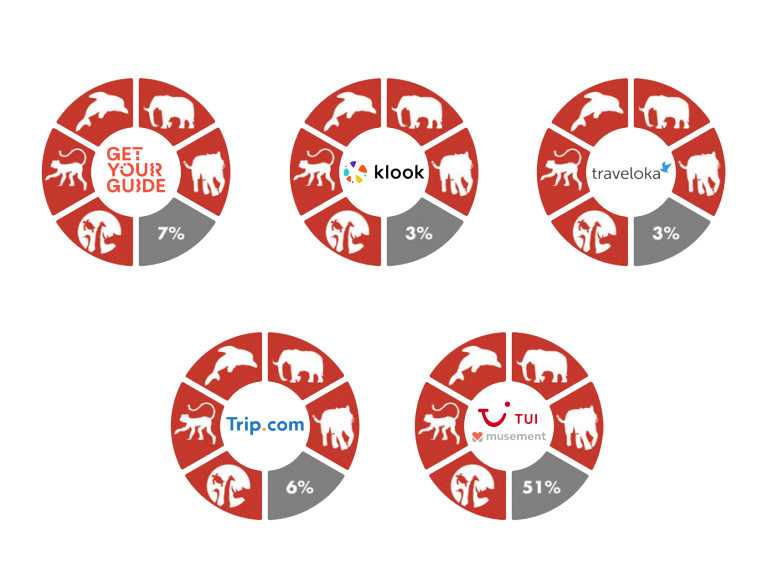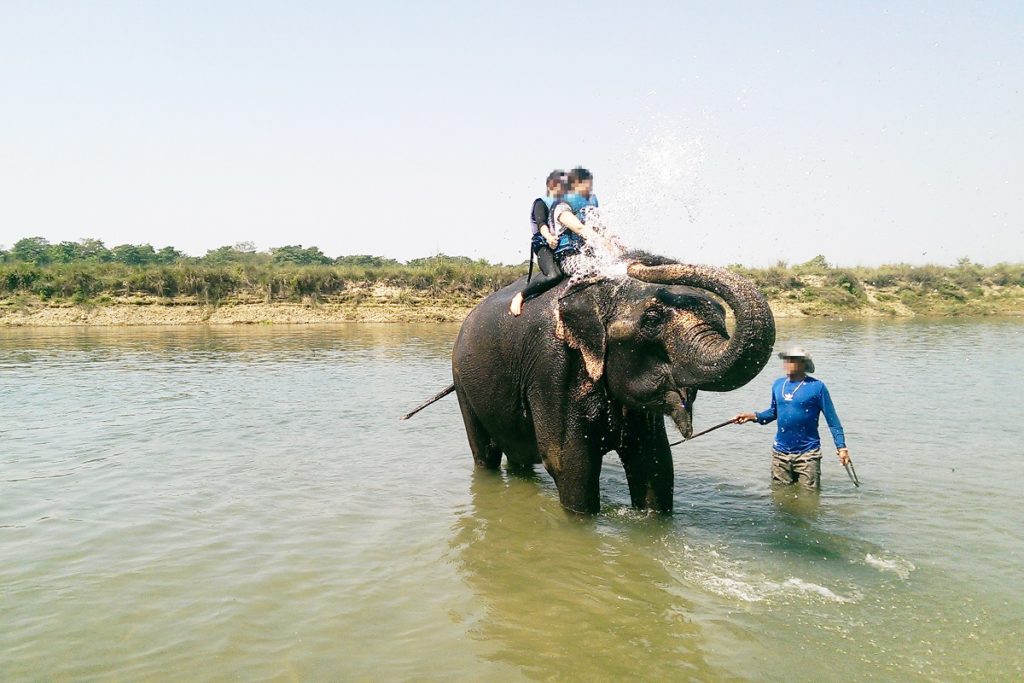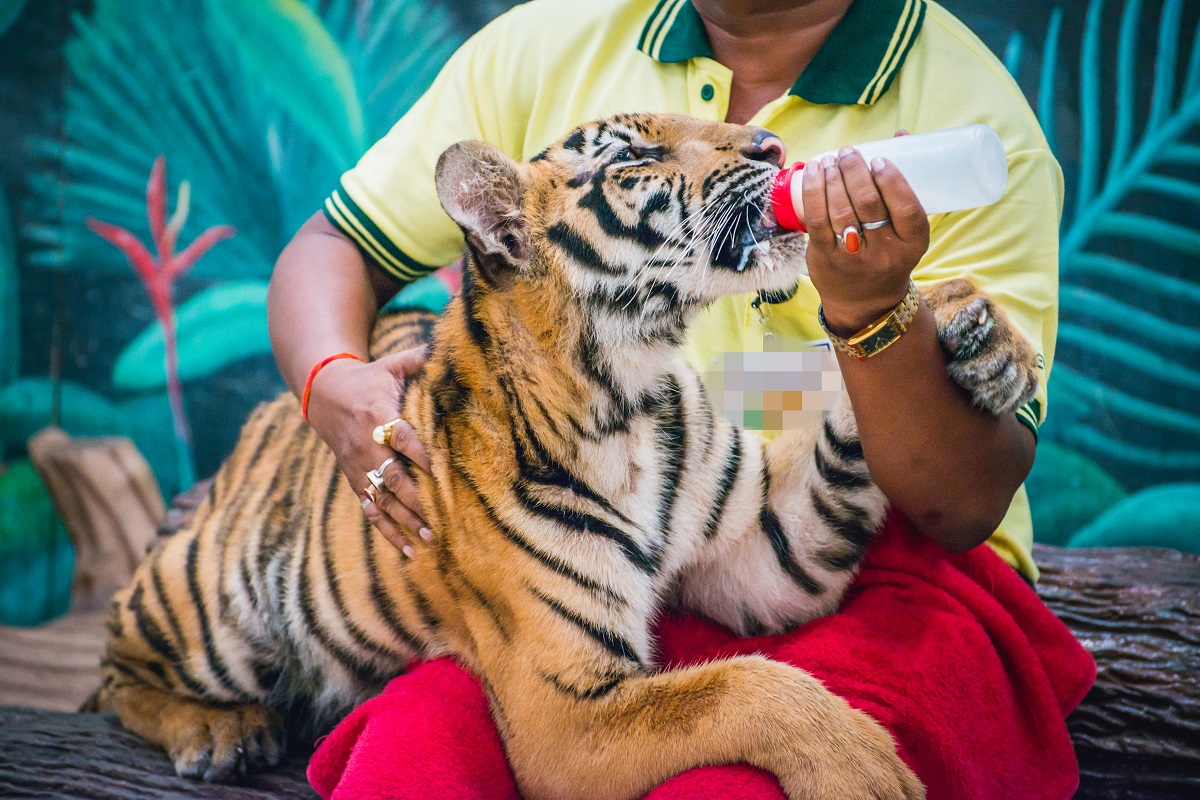Skift Take
A new report shows that as responsible travel becomes the preferred default, tour operators must carefully consider the power they wield in the experiences economy. After all, travelers are becoming much more discerning about the companies they book with.
Sustainable travel has developed a sense of urgency post-pandemic. However, while carbon emissions, environmental degradation, and cultural sensitivity are picked apart at length, animal exploitation through the sale of captive wildlife entertainment has received less pushback.
And tour operators, in particular, are said to be “failing wildlife by selling exploitative experiences and attractions or by operating their business without concern for animal exploitation.” This is according to a new responsible tourism report commissioned by World Animal Protection and undertaken by the University of Surrey.
The study reviewed nine leading travel companies on their experiences involving animals. Five influential tours and activities companies, Traveloka, Trip,com, Klook, GetYourGuide and TUI Musement were pinpointed for “selling harmful exploitative wildlife experiences across a wide range of wild animal species.” The report scored four of these companies under 10 percent for their businesses’ consideration to animal welfare across their policies, targets, and supply chains. Read the full report here.
Essentially, the report states brand trust is a significant enabling factor of animal exploitation. Well-known brands who promote and sell wildlife entertainment venues lead tourists to assume the activities are acceptable, or even beneficial for wild animals, when in fact they are inhumane and cause lifelong harm to wildlife,” it suggested.

The Real Responsible Traveller report is said to build on World Animal Protection’s 2020 Tracking the Travel Industry report, which assessed Airbnb, AttractionTickets.com, Booking.com, DER Touristik, Expedia, Flight Centre, GetYourGuide, Klook, The Travel Corporation, Viator, Trip.com and TUI Musement.
Independent analysis of these companies scored them across factors related to offering exploitative wildlife entertainment activities. It also looked at whether these companies had the necessary animal welfare policies and vetting procedures in place and how these harmful activities and suppliers were filtered and removed if found to be against the companies’ policies.
Skift reached out for comment on the rating and only two operators responded at the time of publishing.
As part of a dominant operator, TUI Musement’s approach received a rating of 51 percent according to the report’s assessment criteria. A spokesperson told Skift the company sees “high interest for animal attractions and wildlife-viewing opportunities” from its customers.
TUI said its ABTA’s animal welfare guidelines have been in place since 2016. It claimed the framework, developed in consultation with industry experts, includes third-party external audits of animal-involved activities. Suppliers who do not successfully pass the audits are given a roadmap to compliance and if they do not solve the issues, TUI “drops the activity.”
“We will be further analysing the report to understand how we have received this score given the comprehensive processes and actions we have implemented.”
A GetYourGuide spokesperson said the operator is working to “sharpen its guidelines and offerings” in response to questions about its seven percent weighting. Surprisingly, the operator said it had introduced a screening tool for new tours in 2022, overseen by a responsible tourism team.
The process includes manual quality checks on activities according to feedback from travelers and requests from its staff. “Just last week, we removed a tour in Thailand from our listings after receiving reports of an encounter with a chained animal having been offered.”
A snap search shows elephant interactions in Thailand are common across most tours and activities online sites. Elephant washing experiences are prolific, and while they might not seem as cruel as elephant rides, it is cited as unethical by the responsible tourism report.
World Animal Protection further explained that “elephants in entertainment are captured in the wild or born into captivity and taken from their mothers at an early age. They are then subjected to violent training regimes causing huge physical and psychological harm.”

Selfies with tiger cubs and swimming with dolphins were some of the other questionable activities detailed in the report, that sees “thousands of wild animals every year forced to perform for tourist entertainment or be subjects for tourist ‘experiences’ that are incredibly unnatural and stressful.”
World Animal Protection stated that companies assessed were given feedback and a timeframe within which to report back as well as put into effect any necessary changes to improve their offering and overall responsible tourism weighting.
The Daily Newsletter
Our daily coverage of the global travel industry. Written by editors and analysts from across Skift’s brands.
Have a confidential tip for Skift? Get in touch
Tags: responsible tourism, sustainable tourism, tour operators, tours and activities, Travel Experiences, tui, tui musement
Photo credit: Caption Tourist is taking a picture with a young tiger. Source: World Animal Protection/Emi Kondo Credit Line: World Animal Protection/Emi Kondo / World Animal Protection/Emi Kondo
